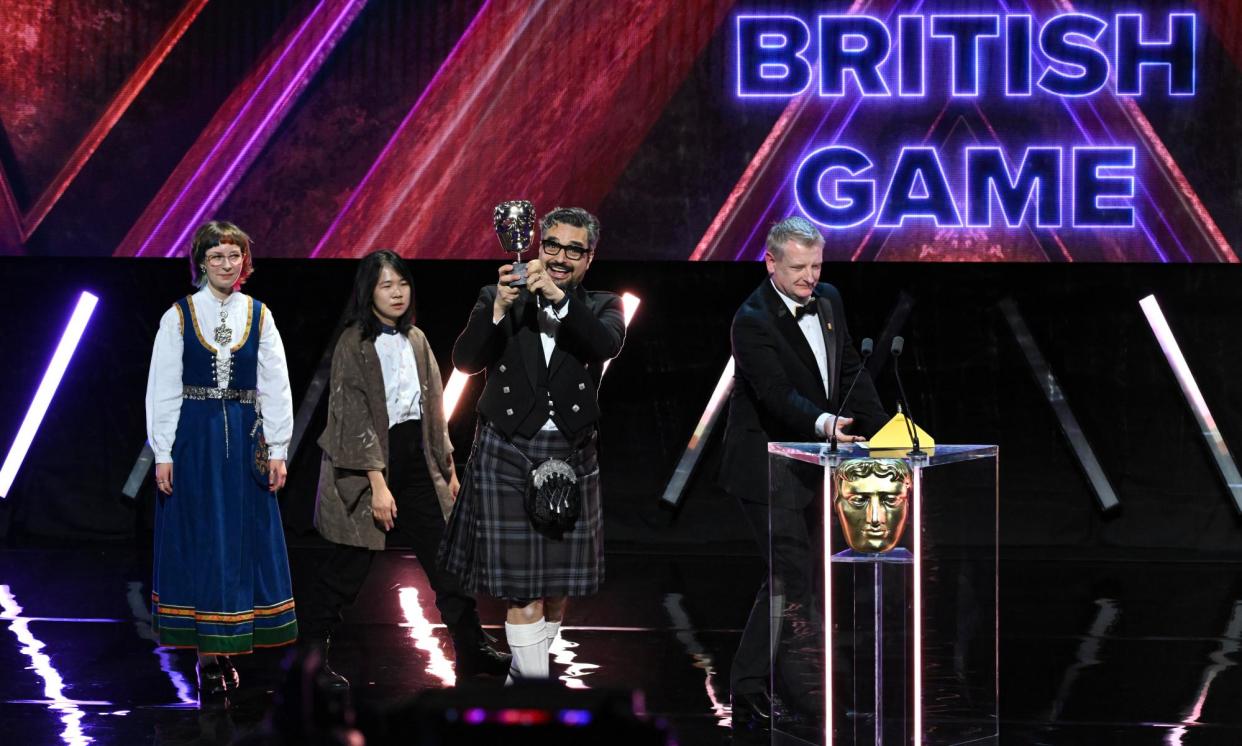Bafta games awards hail one of gaming’s best ever years

In London last night, the 20th Bafta games awards celebrated a year that was stacked with critically acclaimed games. Taking place against the backdrop of an unprecedented year of layoffs and studio closures in the gaming industry, acknowledged by Bafta chair Sara Putt in her speech at the beginning of the evening, it was a much-needed night of recognition of the creative efforts of the video game development community.
The sprawling Dungeons & Dragons-inspired role-playing game Baldur’s Gate 3 won five awards, including the public voted EE players’ choice award and best game, alongside music, narrative and best performer in a supporting role (won by Andrew Wincott for his role at the devilish Raphael). Nintendo picked up the family and multiplayer awards for the exuberant Super Mario Bros Wonder, and technical achievement for The Legend of Zelda: Tears of the Kingdom. Alan Wake 2, the arresting, idiosyncratic horror game from Finnish studio Remedy, won artistic achievement and audio achievement.
Any of the big winners could have cleaned up in any other year, but, as the nominations showed, 2023 was such a high-quality year for gaming that competition in each category was fierce. Dave the Diver, a superb game about a sushi restaurant owner who hunts his own seafood beneath the waves, won the game design award, and the charming New Caledonia-inspired Tchia won game beyond entertainment. Venba, an autobiographical cooking game about a family’s experience as immigrants in Canada, won debut game – beating Dredge, the excellent unsettling fishing game. Venba’s designer Abhi used the winner’s speech to call for “a complete ceasefire and end to the horrific genocide that’s still happening in Palestine”.
The biggest indie winner of the night was Sad Owl Studios’ ingenious photographic puzzler Viewfinder, winner of the British game and new intellectual property prizes, which also gave us some of the most enjoyable speeches of the night from its delighted and somewhat overwhelmed development team, ending with: “We’d love to make Viewfinder 2, so, please, give us money.”
Nadji Jeter, who plays Miles Morales in Marvel’s Spider-Man 2, won the prestigious performer in a leading role award, while Cyberpunk 2077 cemented its comeback from a shaky start in late 2020 by winning best evolving game, and Hi-Fi Rush won best animation. This year’s special award was handed to SpecialEffect, a charity that works to create custom setups to open the worlds of gaming to physically disabled people. Its chief executive Dr Mick Donegan received the award to a standing ovation.
The full list of Bafta games awards winners
Animation Hi-Fi Rush
Artistic achievement Alan Wake 2
Audio achievement Alan Wake 2
Best game Baldur’s Gate 3
British game Viewfinder
Debut game Venba
EE players’ choice Baldur’s Gate 3
Evolving game Cyberpunk 2077
Family Super Mario Bros Wonder
Game beyond entertainment Tchia
Game design Dave the Diver
Multiplayer Super Mario Bros Wonder
Music Baldur’s Gate 3
Narrative Baldur’s Gate 3
New intellectual property Viewfinder
Performer in a leading role Nadji Jeter, Miles Morales in Marvel’s Spider-Man 2
Performer in a supporting role Andrew Wincott, Raphael in Baldur’s Gate 3
Special award SpecialEffect
Technical achievement The Legend of Zelda: Tears of the Kingdom


